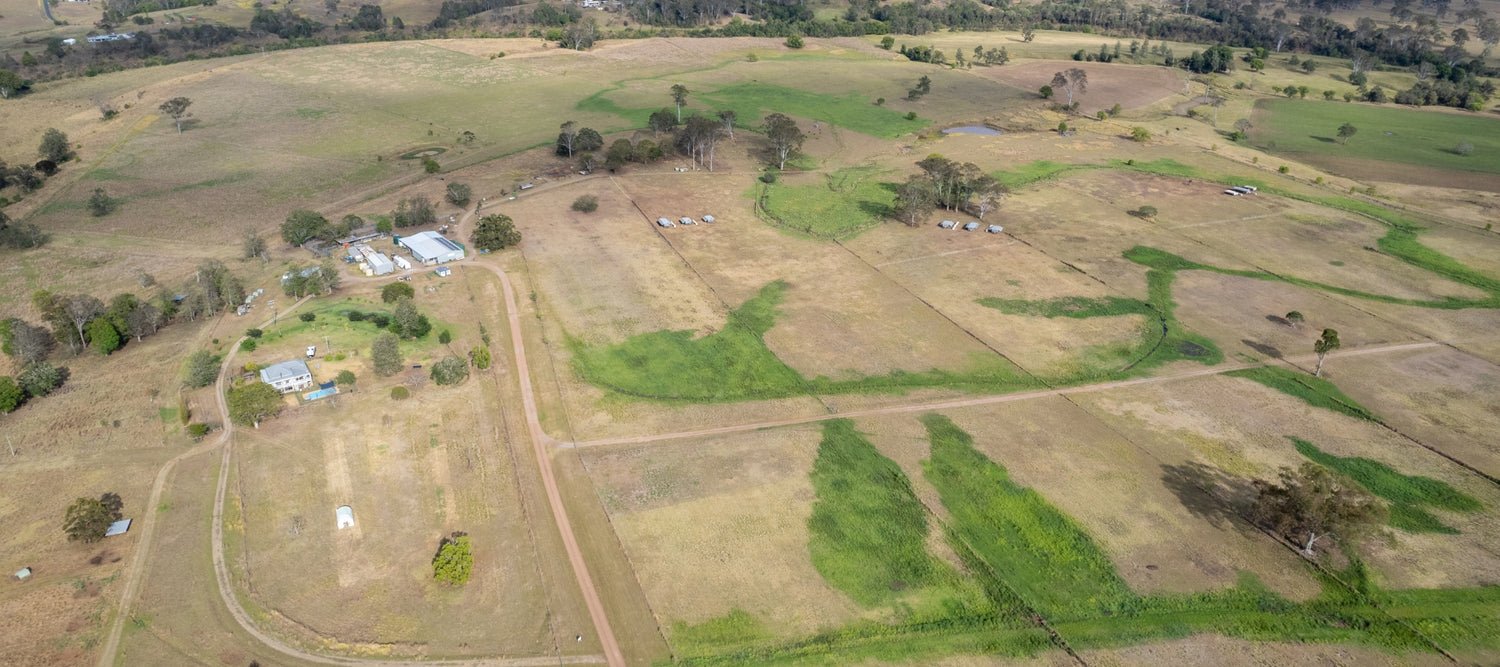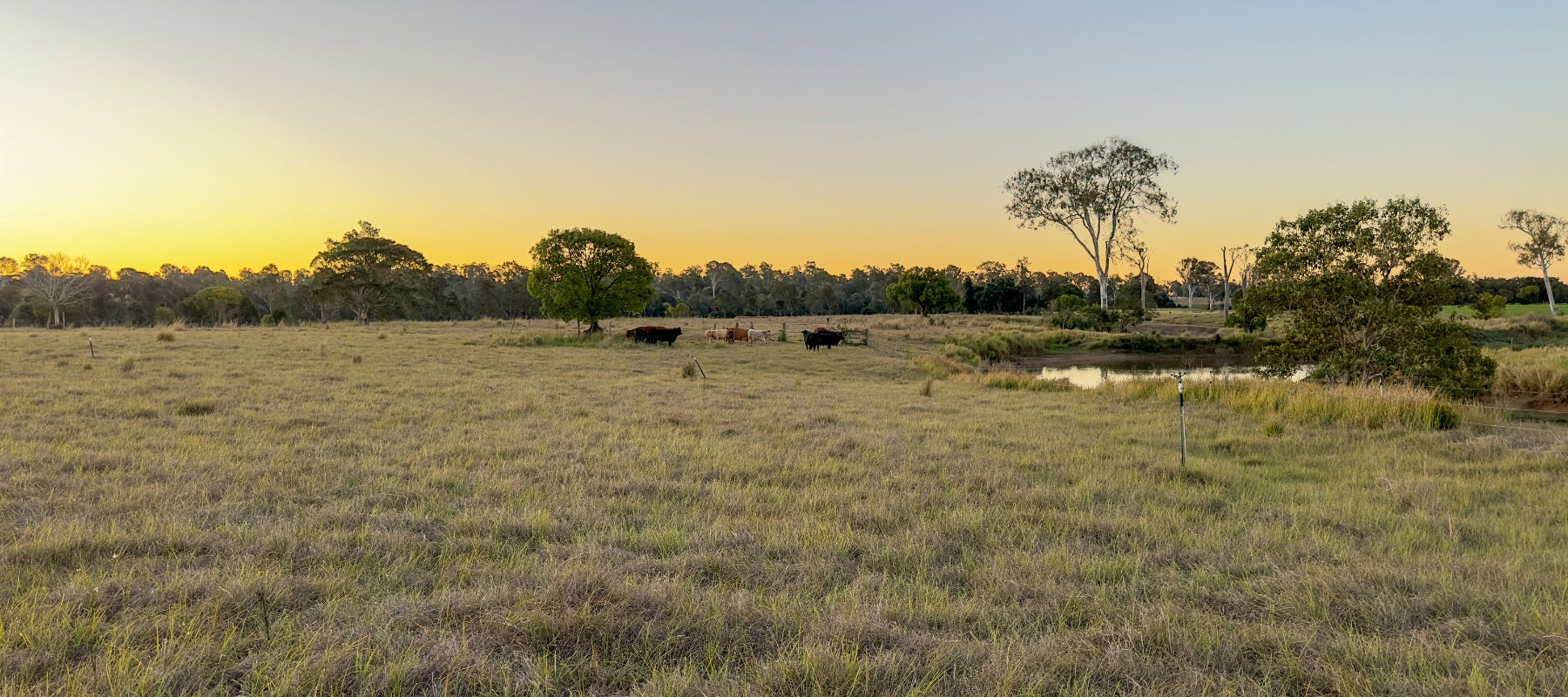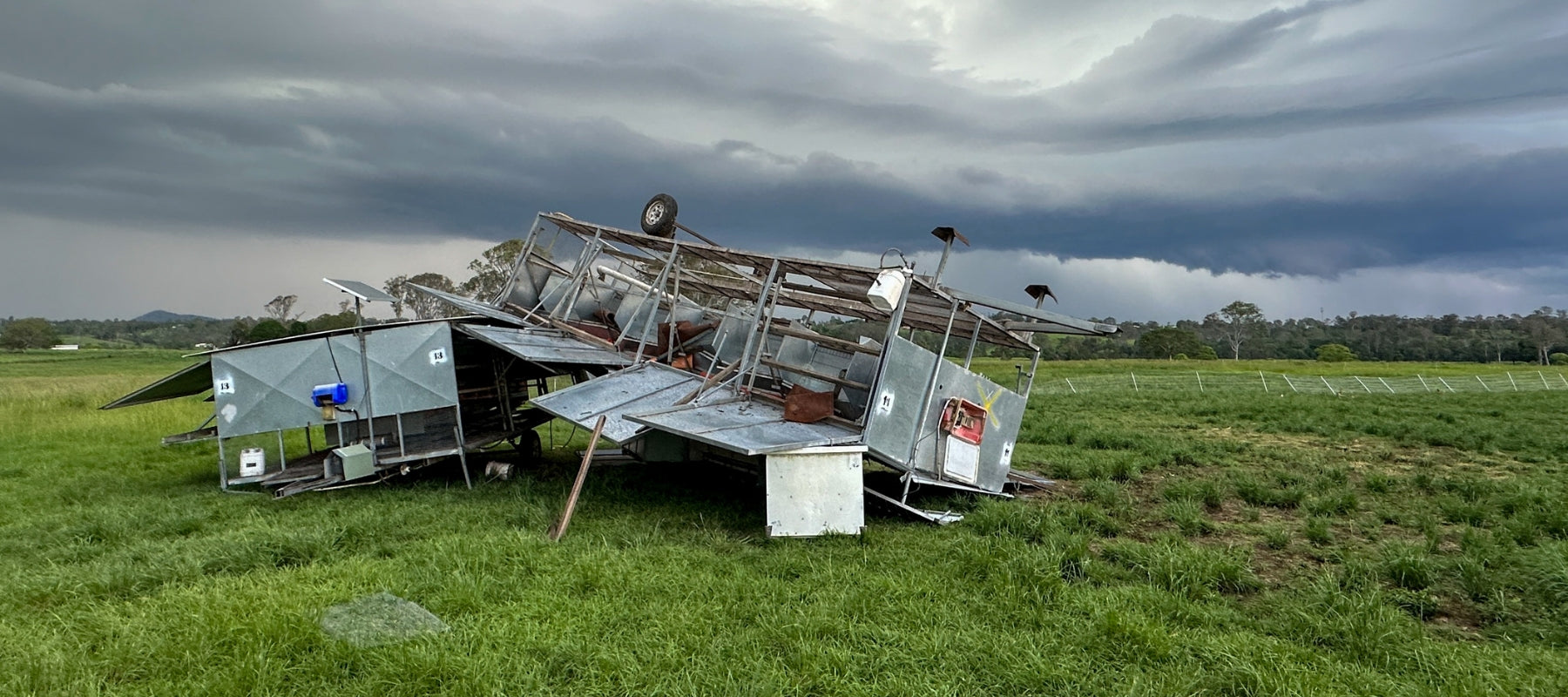Our Spring Farm Update is here, and we're excited to share what's been happening at Forage Farms!
Let's start with our Layers. We welcomed the arrival of a new ACT1500, a 1500 bird capacity house, marking a first for us – it's the first house we've purchased rather than constructed on our own. The house's arrival had its challenges, but we're thrilled to announce that as of January, our first flock of birds are now comfortably settled in this new facility, marking a promising start.
The question arises, why such a large house? We're currently theorising and trialling running our flocks with fewer houses to streamline regular tasks, particularly egg collection, and manage the movements of chickens more efficiently. We move the houses three times a week and with 15 or 18 houses to move each time, increasing the frequency of movement becomes a challenge. The single, larger house allows us to move the hens more frequently, aligning better with our grazing practices and land management beliefs.
In the Cattle department, we've expanded our breeding herd once again. We added another bull to our family, welcoming Nelson, the Boran bull. The Boran breed, originating from the Borana pastoralists of southern Ethiopia and northern Kenya, is known for its outstanding adaptability, high fertility, ease of calving, adequate milk production, excellent mothering ability, and longevity in harsh environments – traits we value in our breeding stock. Nelson began his time at the farm being joined with our Red Angus heifers. Thanks to John and Julia for the opportunity to add such a great bull to our breeding herd.
We also had the opportunity to purchase more Nguni breeding females but were cautious due to the very dry spring months. October saw practically no rain at Forage Farms, and our yearly rainfall is at one of the lowest records in history. However, after a thorough feed budget across the farm, we found that we had enough feed for several months, giving us time for the wet season to arrive and some rain to replenish the land. With that, we expanded our Nguni female herd by purchasing an additional 29 Nguni Cross females in October.

The Pigs have had a busy spring with sows being joined and others preparing for farrowing. With Christmas nearing, we also had a large group of grower pigs on the ground being grown out for Christmas Hams, ready to grace many family tables. Spring always kickstarts the Christmas hams, with pre-orders opening in early spring and by mid-November, the ham creation process begins with our butcher, Luke at Kilkivan Meats.
Our Broilers had two batches run through the pastures on the farm over the spring months. The warm weather led to some necessary adjustments to our portable paddock house. To better manage the heat, we installed misters inside the house, which greatly improved the environment, making it quite pleasant for birds even on those hottest days.
We also spent the spring months preparing our landscape for the summer rains. We filled the contours we built around the farm with water, a process we call 'charging' the landscape. It allows us to start the natural hydrological process and prepare our land before the rain arrives. We also placed some of the compost we made on the farm in strategic sites along the contour, allowing gravity to move that fertility down the landscape and feed the paddocks.

By doing so, we're getting the property ready for rain. It allows moisture into the topsoil and subsoil, and when it rains, it will take less rain to really get things started growing as less will be lost filling the soil profile, as we've already completed that.
That's our spring update! Thank you for your continued support - Stay tuned for more updates!




